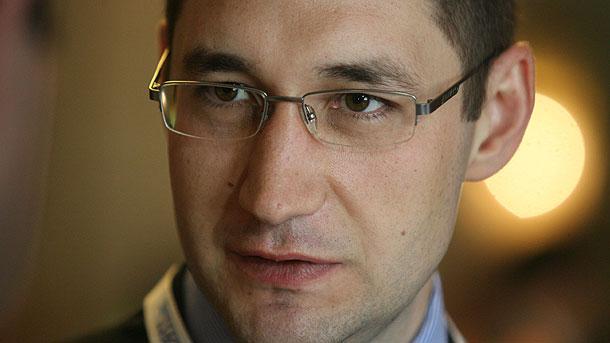Many Bulgarian governments had the ambitious goal to help this country join the Eurozone. It happened in times when the European Union was a steady market and the Euro - a strong currency. The crisis, however, has spoiled the good image of the community and the common European currency has started to lose its glitter. The European Central Bank started to print more money, in order to stabilize its banking system and help Europe beat the recession. The latter is a bad sign of the stability of the European economies and a red light to Bulgaria’s ambition to enter the Eurozone which currently consists of eighteen EU countries. The Euro is not the heal-all for Bulgaria anymore.
The Bulgarian Lev in fact is equal to the Euro, i.e the exchange rate between both currencies has been fixed for many years. In this sense, we are formally part of the Eurozone. Of course, Bulgaria is not entirely part of the zone, because its banking system does not have access to the ECB treasury, the low interest rates and the bailout funds. However, Bulgaria uses the Euro and some of the positive and the negative features of the monetary system. We focus on this issue now, because the European Central Bank and the European Commission have recently released a report which reads that Bulgaria was not ready to join the Eurozone yet. Lithuania is the outstanding country in this process and Bulgaria, the Czech Republic, Croatia, Hungary, Poland, Romania and Sweden are to wait for the next verification in two years. The Ministry of Finance has categorically announced that Bulgaria was ready to join the Eurozone, as it covered all necessary criteria. So, we started again to ask ourselves the questions asked several years ago - whether the risks stemming from a possible accession to the Eurozone are higher than the expected benefits.  Renowned Bulgarian economic expert Georgi Angelov comments on the topic.
Renowned Bulgarian economic expert Georgi Angelov comments on the topic.
How Bulgaria will benefit from a possible accession to the Eurozone?
“The main benefit for a given country which joins the Eurozone regards the fact that it becomes a member of a very successful economic and currency union. In other words, the country adopts a world currency, the interest rates are lower, the international markets have higher confidence in this country, trade is easier, the tourism sector develops and as a result the economic growth is higher. These benefits were not so obvious during the crisis. Now, when Europe slowly starts to recover from the crisis and marks an economic growth, these advantages will eventually return. The Euro has a very high geopolitical value for all Baltic countries. They want to be as close to Europe as possible to make sure that other neighboring countries including Russia can not influence them, as it already happened in Ukraine.”
If Bulgaria joins the Eurozone, we may give more loans to countries like Greece, Portugal and other EU member states with financial problems. There is a high uncertainty which stems form the European crisis.
“Some EU states already use this argument-they prefer to wait for several years to see the consequences of the financial and banking crisis in Europe, so they do not have to lend money to Greece. The society would not accept the fact that a poor country like Bulgaria would provide aid to countries such as Portugal and Greece. ”
There is a lot of skepticism in Bulgaria: The European crisis will affect this country, the EU bureaucracy will ruin the business and the Euro becomes weaker…..
“Highest optimism was shown back in 2008 and 2009 when crisis was looming in Bulgaria and the Euro looked stable. Later things have changed completely. Members of the Eurozone such as Greece, Portugal, Ireland, Spain and Italy were affected by a heavy crisis and the countries outside the zone looked somehow more stable. The Euro will again attract the countries’ interest when the crisis is over. However, the new European Commission must be active and aim at solving these issues. ”
Some analysts contend that the currency board in Bulgaria has run out of its potential.
“The currency board saved us from the hyperinflation that loomed in the country in the past and if we look at the criteria that must be met in order to join the Eurozone, we would actually realize that thanks to the currency board Bulgaria has fulfilled all necessary requirements. Now we only have to meet some informal criteria: to guarantee the stability of the institutions and restore the confidence of our European partners, because we have started to lose this confidence over the recent weeks. This is our biggest problem regarding the Eurozone accession”, concludes Georgi Angelov.
English version: Kostadin Atanasov
It is extremely concerning that the largest company in Bulgaria, Lukoil Neftohim, which is part of the country's critical infrastructure, is still in the hands of a country that has declared Bulgaria a hostile state. This opinion was shared by energy..
“The divergence between the monetary and the fiscal policy pursued by the government continues to be the main reason why Bulgaria does not meet all criteria yet for entering the Eurozone,” Lyubomir Karimansky, member of the Governing Council of the..
Germany remains Bulgaria's strongest economic partner. Trade between the two countries for 2024 amounts to EUR 12 billion, said Tim Kurth, President of the German-Bulgarian Chamber of Industry and Commerce. At a ceremony held at the University of..

+359 2 9336 661
